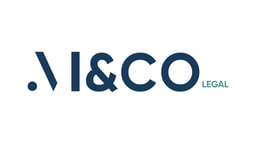News and developments
Dubai Court of Cassation Shifts its Stance on Legal Costs Under Article 38 of ICC Rules
Introduction
The Dubai Court of Cassation (DCC) has recently issued an important decision that reshaped the interpretation of Article 38 of the ICC Arbitration Rules, overturning its previous restrictive stance (the “DCC Decision”). Historically, the DCC held that Article 38 of the ICC Arbitration Rules did not empower tribunals to award legal costs incurred by parties. However, the DCC Decision now signals a significant shift, recognizing that Article 38 can encompass legal costs.
The DCC��s Previous Position on Article 38 of the ICC Rules
The earlier position of the DCC did not deem Article 38 of the ICC Rules sufficient to authorize tribunals to award legal costs to successful parties besides arbitration costs. The courts argued that the Article’s wording did not explicitly include legal costs, leading to partial annulments of awards that relied on this provision to award legal costs. This stance has been notably different when it came to Article 36(1) of the DIAC Rules of 2022 which explicitly defines arbitration costs to include legal representatives’ fees “the fees of the legal representatives and any expenses incurred by those representatives”.
In contrast, Article 38 of the ICC Rules states that “The costs of the arbitration shall include the fees and expenses of the arbitrators and the ICC administrative expenses fixed by the Court … as well as the fees and expenses of any experts appointed by the arbitral tribunal and the reasonable legal and other costs incurred by the parties for the arbitration.” While broader in scope, the DCC has always found the language ambiguous and insufficiently explicit.
Moreover, Article 46 of the UAE Arbitration Law provides tribunals with the discretion to allocate arbitration costs, but it does not explicitly mention the legal fees of legal representatives. This gap led the courts to impose additional scrutiny on awards granting legal costs unless expressly supported by institutional rules or the parties’ agreement. The lack of specificity in the ICC Rules was viewed as a barrier under this legal framework.
A Departure from Restrictive Interpretation
In the DCC Decision, the DCC interestingly took a new stance and emphasized that the broad and inclusive language of Article 38 of the ICC Rules does not limit the scope of recoverable costs to specific categories. The phrase "reasonable legal and other costs" was interpreted to encompass legal fees, as the term "other costs" implies that the Article is open-ended and intended to cover a wide range of expenses reasonably incurred by parties during arbitration proceedings. This development arose from a case where a tribunal had awarded costs to the successful party, relying on Article 38. The losing party sought to annul the arbitral award on the grounds that the ICC Rules did not explicitly authorize such awards.
The DCC further held that where parties have agreed to the ICC Rules to govern their arbitration, Article 38 supersedes the UAE Arbitration Law with respect to cost allocation, including legal costs, provided that such agreements do not violate public policy.
Conclusion
By embracing a broader interpretation of Article 38 of the ICC Rules, the DCC has acknowledged the evolving needs of arbitration parties and the importance of aligning with international best practices. The DCC Decision enhances the clarity and enforceability of awards on costs under ICC arbitrations and, reinforces party autonomy as a foundation of the arbitration process while assuring them that the legal costs can now be reasonably recovered under Article 38 without further separate agreements on the same.
Author: Dr Mahmood Hussain and Roaa Abou Assi
